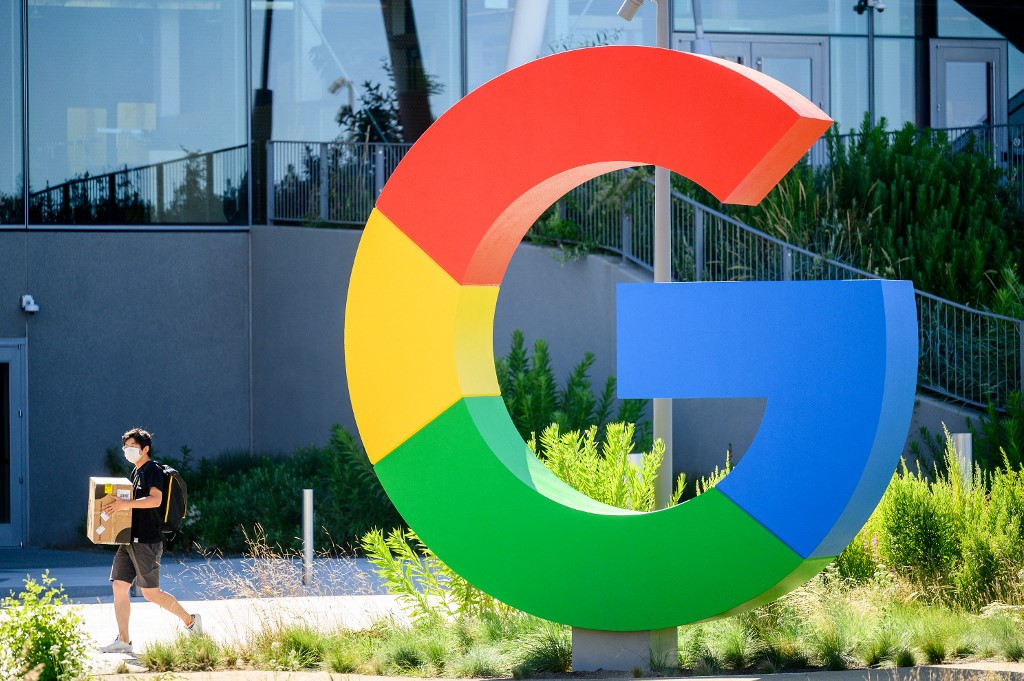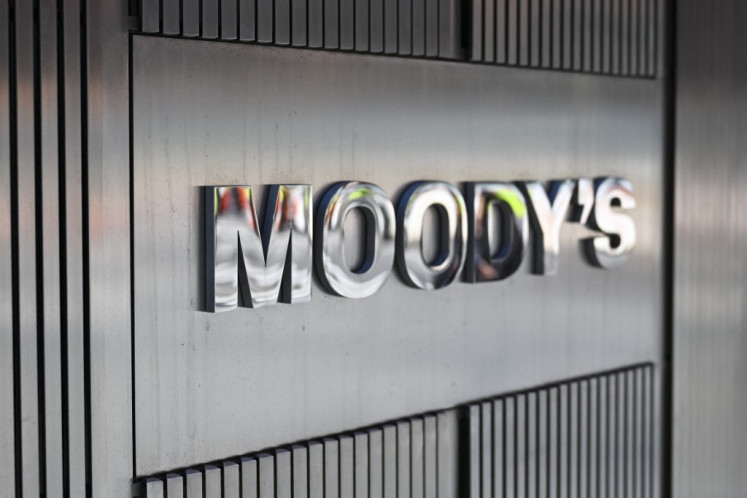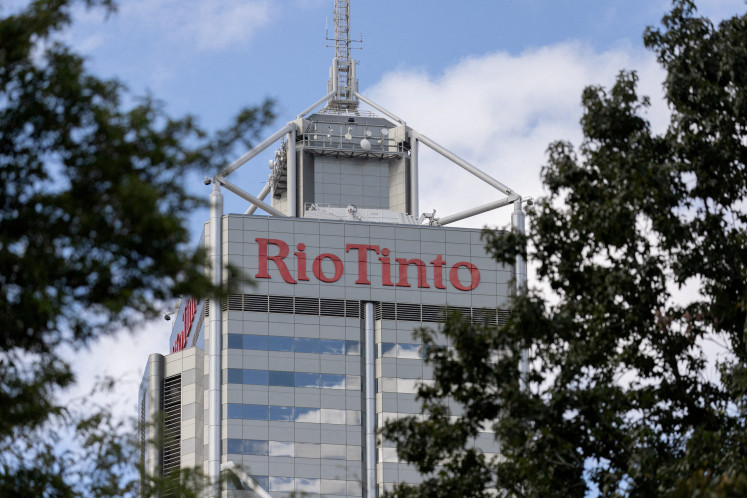Popular Reads
Top Results
Can't find what you're looking for?
View all search resultsPopular Reads
Top Results
Can't find what you're looking for?
View all search resultsGoogle loses bid to block Indian Android antitrust ruling in major setback
The Competition Commission of India (CCI) ruled in October that Google, which is owned by Alphabet Inc, exploited its dominant position in Android and told it to remove restrictions imposed on device makers, including related to pre-installation of apps. It also fined Google $161 million.
Change text size
Gift Premium Articles
to Anyone
 Drawing lines: Google’s iconic “G” log is seen on June 27 at the tech giant’s Bay View campus in Mountain View, California. Tech rivals Meta, Microsoft, TomTom and Amazon Web Services have joined forces to unveil the Overture Maps Foundation on Thursday, which aims to offer open-source, comprehensive mapping data that is freely available. (AFP/Noah Berger)
Drawing lines: Google’s iconic “G” log is seen on June 27 at the tech giant’s Bay View campus in Mountain View, California. Tech rivals Meta, Microsoft, TomTom and Amazon Web Services have joined forces to unveil the Overture Maps Foundation on Thursday, which aims to offer open-source, comprehensive mapping data that is freely available. (AFP/Noah Berger)
G
oogle on Thursday lost its fight in India's Supreme Court to block an antitrust order, in a major setback that will force the US tech giant to change the business model of its popular Android operating system in a key growth market.
The Competition Commission of India (CCI) ruled in October that Google, which is owned by Alphabet Inc, exploited its dominant position in Android and told it to remove restrictions imposed on device makers, including related to pre-installation of apps. It also fined Google $161 million.
Google challenged the order in the Supreme Court, saying it would hurt consumers and its business. It warnedgrowth of the Android ecosystem could stall and it would be forced to alter arrangements with more than 1,100 device manufacturers and thousands of app developers. Google also said "no other jurisdiction has ever asked for such far-reaching changes".
A three-judge bench at the Supreme Court, which included India's chief justice, delayed the Jan. 19 implementation of the CCI's directives by one week, but declined to block them.
"We are not inclined to interfere," Chief Justice D.Y Chandrachud said.
During the hearing, Chandrachud told Google: "Look at the kind of authority which you wield in terms of dominance."
About 97 percent of 600 million smartphones in India run on Android, according to Counterpoint Research estimates. Apple has just a 3 percent share.
India's top court asked a lower tribunal, which is already hearing the matter, to decide on Google's challenge by March 31.
Google did not respond to a request for comment.
Google licenses its Android system to smartphone makers, but critics say it imposes restrictions such as mandatory pre-installation of its own apps that are anti-competitive. The company argues such agreements help keep Android free.
Faisal Kawoosa, founder of Indian research firm Techarc, said the Supreme Court ruling meant Google may have to consider other business models in India, such as charging an upfront fee to startups to provide access to the Android platform and its Play Store.
"At the end of the day, Google is for profit and has to look at measures that make it sustainable and power growth for its innovations," he said.
Android has been the subject of various investigations by regulators around the world. South Korea has fined Google for blocking customised versions of it to restrict competition, while the United States Justice Department has accused Google of executing anticompetitive distribution agreements for Android.
In India, the CCI has ordered Google that the licensing of its Play Store "shall not be linked with the requirement of pre-installing" Google search services, the Chrome browser, YouTube or any other Google applications.
It also ordered Google to allow the uninstalling of its apps by Android phone users in India. Currently, apps such as Google Maps and YouTube can not be deleted from Android phones when they come pre-installed.
Google has been concerned about India's decision as the steps are seen as more sweeping than those imposed in the European Commission's 2018 ruling, when Google was fined for putting in place what the Commission called unlawful restrictions on Android mobile device makers. Google has challenged the record $4.3 billion fine in that case.
In Europe, Google has made changes including letting Android device users pick their default search engine from a list of providers.
Google also argued in its legal filings, seen by Reuters, that the CCI's investigation unit "copy-pasted extensively from a European Commission decision, deploying evidence from Europe that was not examined in India".
N. Venkataraman, a government lawyer representing the CCI, told the top court: "We have not cut, copy and pasted."










